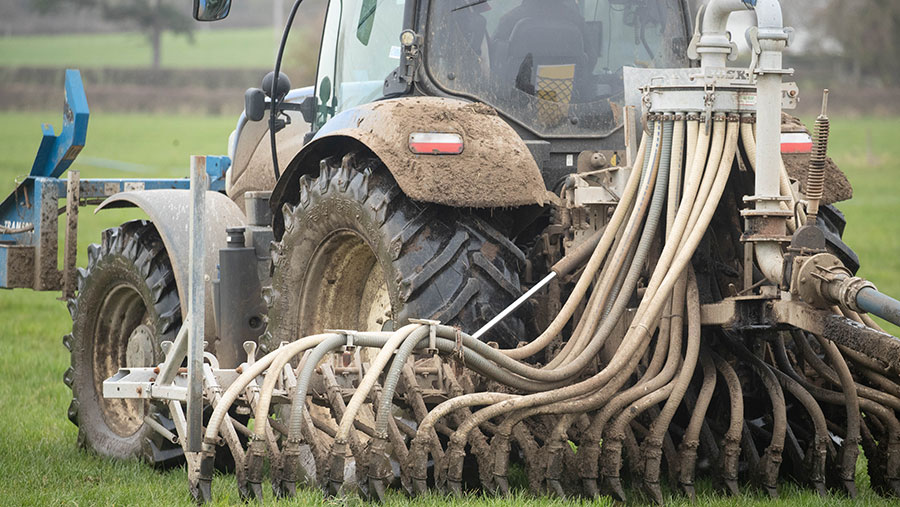NFU Cymru to launch legal action over farm pollution rules
 © Tim Scrivener
© Tim Scrivener NFU Cymru is to launch a legal challenge against the Welsh government’s new rules to limit the use of slurry and fertiliser on farmland to tackle river pollution across Wales.
Tough new water quality regulations that placed the whole of country in a nitrate vulnerable zone (NVZ) came into force on 1 April and will be phased in over three-and-a-half years.
Welsh farmers face having to pay up-front costs of £360m and £14m/year, which will put many small family farms out of business, the union says.
See also: Look again at voluntary NVZ approach, advise Welsh Tories
The regulations will include nutrient management planning; sustainable fertiliser applications linked to the requirement of the crop; limits on when, where and how fertilisers are spread; and upgrading slurry storage facilities to ensure farmers can store slurry for at least five months of the year.
NFU Cymru said the Welsh government’s package of support to farmers to help make these drastic changes was woefully inadequate. It has put forward to the Welsh government farmer-led voluntary initiatives, supplemented by targeted and proportionate regulation, as an alternative proposal to regulations.
But it says the government failed to take into account the proposals and feedback from stakeholders.
The union accepts that a regulatory backstop may be needed, but it must be evidence-based, proportionate to the risk and targeted to the areas where improvements have been shown to be needed.
NFU Cymru, along with its lawyers, legal panel firm JCP Solicitors, and with support from its legal assistance scheme, has decided to ask the Courts of Law to look at these regulations and to determine if they are reasonable or not.
Regulations ‘not effective’
John Davies, president of NFU Cymru, who farms with his family in Merthyr Cynog, near Brecon, Powys, said the union remained “fully committed” to looking after the environment. But it was convinced the regulations were “not an effective way to achieve that”.
“An all-Wales NVZ designation is indiscriminate and punitive,” said Mr Davies. “It will affect every sector; every area of Wales and every farmer will be subject to draconian record-keeping and complex restrictions on the day-to-day running of their businesses for environmental benefits that appear to be quite small.”
The Labour-led Welsh government has insisted that the changes are necessary to tackle serious incidents of water pollution and protect water quality from nitrate pollution.
